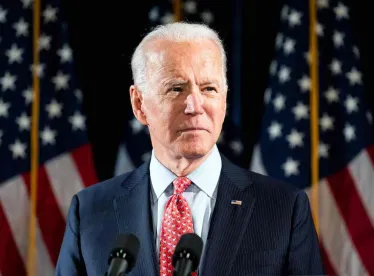President-Elect Biden recently released his “Plan for Strengthening Worker Organizing, Collective Bargaining, and Unions.” His Plan states that “Biden will work with Congress to eliminate all non-compete agreements, except the very few that are absolutely necessary to protect a narrowly defined category of trade secrets, and outright ban all no-poaching agreements,” which are common in franchisor/franchisee and other arrangements. The foregoing statement is consistent with Biden’s previous comments about eliminating non-compete restrictions and no-poaching agreements while on the campaign trail, as well as with the Obama administration’s call for states to ban non-compete agreements.
Whether federal legislation banning non-competes and no-poaching agreements would actually pass remains to be seen. While Democrats have traditionally been more inclined to seek restrictions on the use of restrictive covenants, recently there have been bipartisan efforts to regulate non-compete provisions. The final makeup of the Senate, as well as the continued effects of the pandemic on the economy, and specifically the workforce, may also significantly impact the viability of a federal legislative ban on non-compete clauses and no-poaching agreements.
Nearly all states permit non-compete agreements in some form, although California has long had an outright ban on employee non-compete agreements and North Dakota and Oklahoma allow them only in narrow circumstances. Several other employee-friendly states have been working to limit non-compete agreements for years. For example, Maine and New Hampshire recently enacted bans on non-compete agreements for low-wage workers. Other employee-friendly states, such as Washington, have severely restricted non-compete agreements, including by requiring independent consideration, a minimum salary threshold, and payment of salary during the restriction period for any terminated employees. However, there are also states that value non-compete agreements and have enacted policies to enforce the agreements where reasonable. Florida, for example, enforces non-compete agreements where they are reasonable in scope and supported by an employer’s legitimate business interests, as defined by a state statute.
A national ban on non-compete agreements would certainly rock the boat in an area that varies widely based on state practice and precedent and in which practitioners have long used a variety of strategies to ensure the application of favorable law when enforcing non-compete agreements across states. It would overturn years of statewide precedents in favor of the development of new standards in the federal courts, applying federal law in an area where there is limited federal context for such standards. Most importantly for employers, such a ban would have a major impact on businesses seeking to protect sensitive business information that does not rise to the level of trade secret, such as information regarding prospective customers and competitive strategies.
National non-compete bans have been proposed and have failed in the past, and it is unclear how likely a nationwide ban like the one described in the Biden Plan is to be enacted into law.




 />i
/>i
